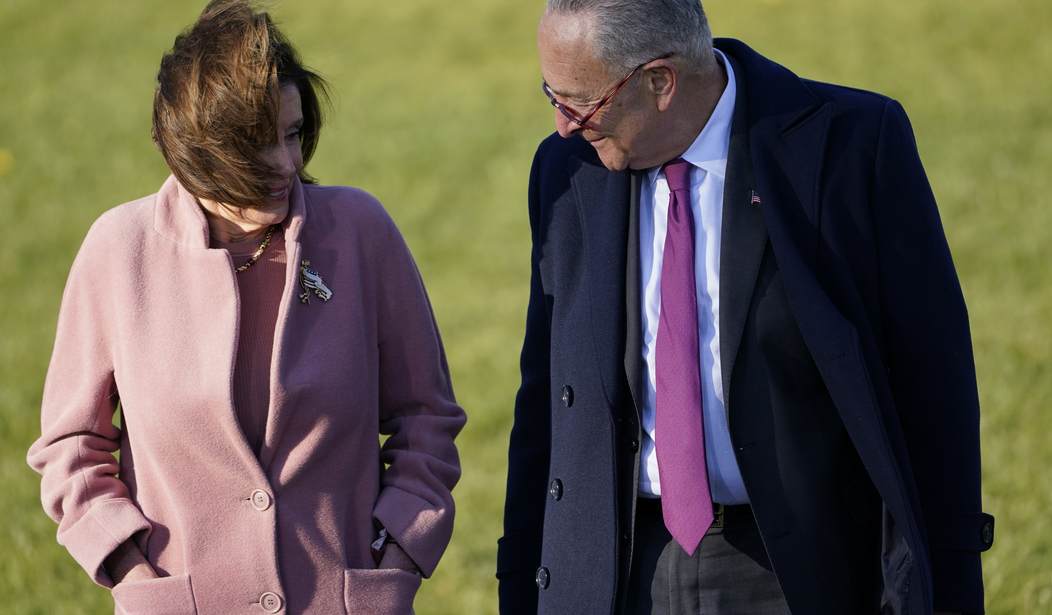It’s long past time for that consideration, although Henry Olsen likely doesn’t disagree. He cites “progressives’ irresistible force” clashing against Joe Manchin’s immovable fiscal realism as an end stage, but that has been the clash all along. Neither side in this game of chicken appears ready to swerve, and therefore the inevitable crash will come.
As could have been predicted at about the time that progressives called Manchin “racist,” but I digress slightly:
It’s theoretically easy to meet Manchin’s bottom line by stripping most of the items out of the bill and focusing on one or two large programs. Advocates are pushing hard to make the expanded child tax credits permanent before the month end, when the current credit expires. That may be attractive to Manchin, but doing so would add nearly $1.6 trillion to the deficit over 10 years. That’s more than the entire amount of new revenue the CBO estimated in November that BBB’s tax hikes would raise.
It would also run afoul of what the bulk of Democrats want from the bill. Progressives have clearly stated all year that they expect a transformational package. That means going as far as possible on a host of issues at once, which is why BBB expands the child tax credit and creates universal pre-K and expands Obamacare subsidies and many other things. They have been willing to compromise thus far primarily on the overall cost, which is why the bill that passed the House has so many programmatic expirations. They have not been willing to admit that there isn’t a Senate majority for a transformational bill. Instead, they have been ramping up the pressure on Manchin to go along with the party majority.
That’s not something Manchin is willing to do, per all his public statements. He said last week that “this is not the best job I’ve ever had . . . I’m not going to sell my soul for this.” He said he was “not a Washington Democrat,” and implied that he would leave the Democratic caucus if asked. For him to cave now would require a massive act of self-abasement that would almost surely end his long political career.
Democrats thus face the specter of progressives’ irresistible force meeting Manchin’s immovable object. That clash looks increasingly likely, and the resultant explosion could easily blow up BBB along with it.
If anything has changed in this calculation recently, it’s Manchin’s public hardening of positions. That comes in large part because of public vindication of his concerns. Inflation has skyrocketed, the supply chains have not improved much, and it turns out that voters actually care more about that than in massive social change. The CBO’s score was probably the last straw, as it exposed precisely the gimmickry that Manchin has publicly opposed for months.
At this point, neither side can back down from their positions at the moment without massive “self-abasement.” Bernie Sanders knows that; Pramila Jayapal knows it; Joe Manchin knows it, too. The difference between them is that Sanders and Jayapal would likely win another election in their constituencies if they backed down, but Manchin’s already an endangered species, being a West Virginia Democrat. If he throws in with Sanders and Jayapal on this massive spending and social engineering bill, he might as well retire now.
This isn’t new, though. It’s been obvious for months that Democrats are at an impasse on BBB, although it’s far from clear that Manchin’s the only objector to it in the Senate Democrat caucus. No one’s yet heard anything definitive — or at all — from Kyrsten Sinema, or for that matter from her Arizona colleague and 2022 incumbent Mark Kelly. Or Catherine Cortez-Masto, or Maggie Hassan. There may be more than one person to convince to commit political suicide in voting for this extreme legislation other than Manchin.
This reminds me of the mid-spring collapse of the Democrats’ bill for a federal takeover of elections. The Post called that one too, and again the main public opponent was Manchin, but resistance turned out to be broader in the end. I wrote about it at the time, and it looks like the same pattern applies here:
The Post mentions that Democrats are frustrated that Manchin won’t overturn the filibuster to eliminate that need for engagement, but that’s also old news and Manchin’s not the only obstacle there either. Kyrsten Sinema has been even more opposed than Manchin to a change or elimination of the filibuster, and her Arizona colleague Mark Kelly belatedly (and somewhat ambiguously) chimed in to support Sinema. Progressives have been attacking Manchin and Sinema as “racists” ever since, which needless to say hasn’t wooed either of them off that position.
The engagement is the point for Manchin, anyway. He announced his opposition to partisan voting-process legislation last week, which again means that Democrats would only get to 49 at best regardless of the status of the filibuster. Manchin, and presumably other Senate Democrats (Manchin claims six votes at least) would rather focus on areas of bipartisan progress rather than majoritarian futility. That shouldn’t have required a public statement, either; competent leadership would have sussed out the caucus and figured out that S1 was DOA already.
Instead, both Nancy Pelosi and Schumer have publicly raised expectations for passage of their bills.
And they’re about to lose again, this time perhaps even more spectacularly, unless Democrats radically revamp the BBB to drop many of its programs in favor of ten-year scoring on those that remain. It’s impossible to see any formula here, as with the elections bill, that could bridge the gap … especially in an environment where Joe Biden’s popularity is exploring where its floor may lie.








Join the conversation as a VIP Member